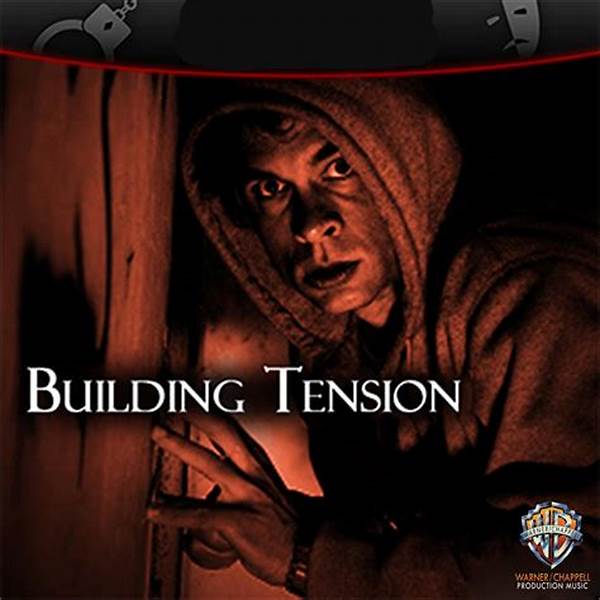Yo, cinephiles! Ever feel that heart-pounding thrill while watching a movie and can’t help but grip the edge of your seat? That’s what film gurus call “building tension,” and it’s the secret sauce to keeping you glued to the screen. Whether it’s a thriller, horror, or even a rom-com, mastering this art makes the difference between a snooze fest and a cinematic masterpiece.
Read Now : Professional Curve Drawing Applications
The Art of Building Tension in Film
Alright, let’s spill the tea on what “building tension” really means. Imagine this: you’re sitting in a theater, popcorn in hand, and suddenly the room starts to feel smaller. The movie hasn’t done anything yet, but your heart’s racing. This magical trick is the art of building tension in film sequences. Directors use it to keep us on the hook, drawing us in slowly like a plot-savvy fisherman. It’s a mix of killer music, shadowy lighting, and camera angles that make us question everything. It’s that wave of anticipation, where you just know something big is coming up but you don’t know when or how. Those mini heart attacks you get? Yep, that’s the magic of tension.
Back in the day, Hitchcock was the OG of tension, but now directors like Christopher Nolan and Jordan Peele are taking it to a whole new level. They play with time, silence, and space, creating a unique rhythm that keeps everyone guessing. So next time you’re watching a flick and you’re feeling the suspense build, take a moment and vibe with the craft that’s messing with your mind and emotions, all in the name of epic storytelling!
Tricks for Building Tension
1. Music and Sounds: Killer beats make your heart race, even if nothing’s happening.
2. Pacing: Slow-mo shots and quick cuts give off different vibes.
3. Lighting: Dark shadows hint something’s lurking around.
4. Silence: Total quiet = creeping suspense.
5. Camera Angles: Get that unsettling feel with unique views—think POV or close-ups.
Building tension in film sequences isn’t just about bombastic moments or jump scares. It’s more about creating an atmosphere that keeps people engaged, making them feel what the characters feel without showing too much too soon. That’s the ultimate level-up in storytelling!
The Science Behind Tension
So, why do we love these intense sequences so much? See, it’s all about psychology, fam! Our brains are hardwired to respond to narrative tension. It’s that fight-or-flight vibe kicking in, making us more alert and tuned into every detail on screen. Building tension in film sequences is like giving the brain a thrill ride without leaving the couch.
When directors play with your expectations, it’s like they got the cheat codes to your brain. You’re sucked into the story, analyzing every frame and sound. It’s a psychological jungle gym, pushing your emotions each way. That’s why when the tension finally breaks, be it through action, resolution, or revelation, it’s like a dopamine jackpot. And let’s be real, who doesn’t love a mental high?
Secrets Behind Building Tension
1. Subtlety: Less is more, for real!
2. Character Investment: Be tight with the characters to feel their vibe.
3. Misdirection: Keep ‘em guessing with unexpected twists.
Read Now : **building Tiktok Animations With Impact**
4. Rhythm Shifts: Change up beats; create uncertainty.
5. Foreshadowing: Tease future chaos to keep the curious hooked.
6. Contrast: Mix quiet scenes with sudden drama.
7. Emotional Stakes: Make the outcome matter, big time.
8. Layered Narrative: Multiple suspense threads intersecting.
9. Symbolism: Objects or motifs hint at deeper meanings.
10. Cliffhangers: Leave them hanging for more, always.
The Impact of Building Tension on Audience Experience
When it comes to building tension in film sequences, it’s all about that ultimate viewer immersion. You’re not just watching; you’re living it, breathing it, and feeling every pulse of the onscreen drama. This tension hooks you so deep that sometimes you may even forget you’re just sitting in a cinema. The director’s trickery pulls your strings, taking you on a rollercoaster of emotions, leaving your senses in a state of electrified expectation.
The fun part? Tension doesn’t always mean scary or bad vibes. Sometimes, it’s all about the sweet anticipation—waiting for that next big move or romantic twist. Great filmmakers know how to blend these feelings, interweaving fear with excitement, dread with hope. This balanced cocktail keeps audiences on the edge, craving the highs and bracing for the lows. It’s like a perfectly mixed track playing with your emotions on full blast. So next time you’re riding the tension wave at the movies, kudos to those cinematic maestros who make the magic happen!
Techniques Directors Use
Breaking down the cine-lingo, directors have this cool toolkit for fueling tension. They mix up cuts and play with audio just right to catch their audience off-guard. Building tension in film sequences isn’t just an art; it’s a science. Directors know what makes us tick—our minds love a good game of “what-if,” and they deliver it every time. They use shadows, music, pacing, and all kinds of elements to toy with our nerves, making the experience unforgettable.
Just think about those scenes where time seems to crawl, every little noise is sharper, and your heart skips with every beat. Directors are low-key masterminds of tension, molding every aspect like sculptors. They know that a pinch of suspense, mixed with well-time reveals, turns an average plot into a thriller masterpiece. With their tricks, they have us all cornered in our seats—guessing what’ll pop out next, and we just can’t get enough!
